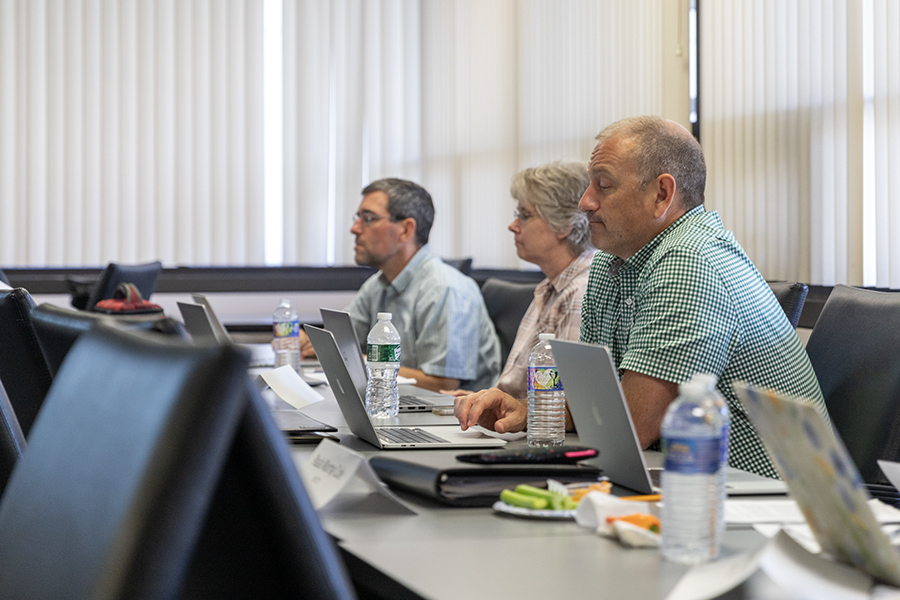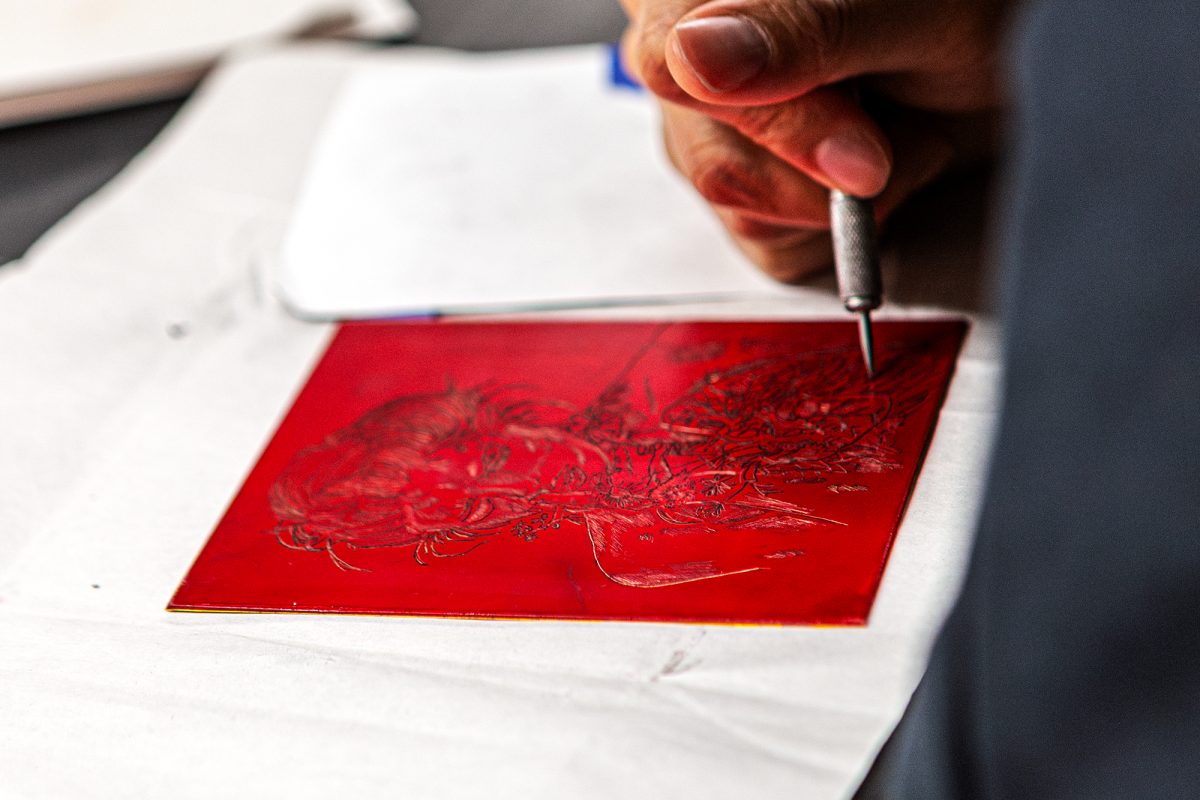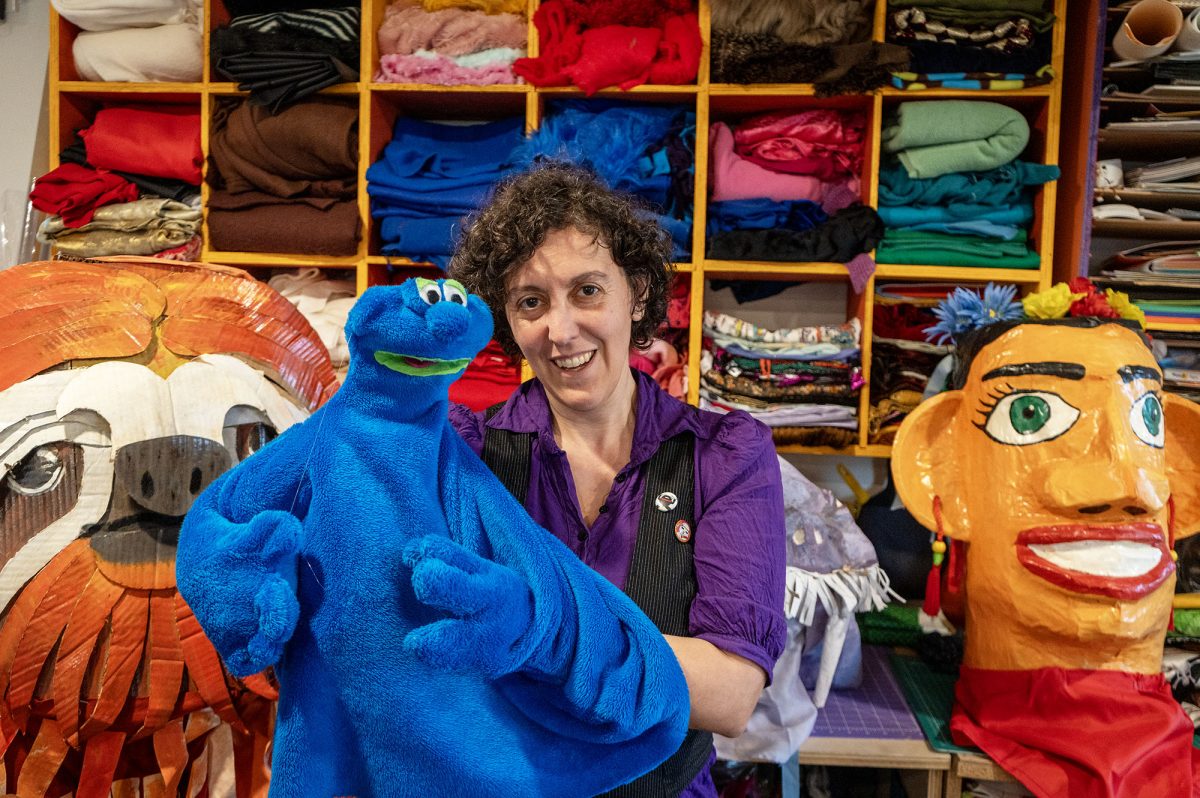On Sept. 5, the Ithaca College Faculty Council met for its first meeting of the Fall 2023 semester to discuss faculty search procedures, revisions to the grievance policy and future meeting times.
The council welcomed two members-at-large to the Faculty Council Executive Committee: Music Librarian Kristina Shanton and Carly Jo Hosbach-Cannon, associate director and graduate program chair of the Department of Speech, Language, Pathology and Audiology.
David Gondek, chair of the council and associate professor in the Department of Biology, requested members to nominate themselves for the position of council parliamentarian. Gondek said the primary role of the parliamentarian would be to assist the chair in running meetings smoothly.
Melanie Stein, provost and senior vice president of academic affairs, said as a part of her report that a volunteer group of administration and faculty created a shared governance value statement as an aid to understanding the new structure.
“That collaborative work led to [the statement], as well as … a graphic summary of the various responsibilities of decision making in shared governance decisions,” Stein said.
Stein updated the council about the pre-registration pilot program launched for students in summer 2022. Stein said students and parents had a more positive experience during registration season this year because of the pre-registration program. The program selected courses for incoming first-year students and created a schedule for them based on their indicated interests to reduce the students’ stress.
“Definitely compared to last summer, it was much calmer in the deans’ offices,” Stein said. “They didn’t hear that same kind of agitation from parents and students. So, that’s a very good sign.”
Hilary Greenberger, professor in the Department of Physical Therapy, said that while the pre-registration program resulted in smooth onboarding, it led to a lack of understanding of the process among students.
“I do want to say that I noticed that students now have no idea how to add/drop. … They were really, really lost,” Greenberger said. “We spent quite a bit of time helping students understand that process.”
Lauren Steele, vice chair of the faculty council and assistant professor in the Department of Media Arts, Sciences, and Studies, suggested that faculty should be made more aware of registration resources like video tutorials to help students.
“I think it might be worth potentially sharing [available resources] at a college meeting so that knowledge gaps can be addressed, and we can better advise our students,” Steele said.
The council then went on to discuss the procedure for faculty searches. Stein said the practice of using Equity Advocates — typically members of the search committee whose role is to keep the search process equitable by keeping biases in check — was formally incorporated into the guidelines.
“This has always been the procedure,” Stein said. “So [now] we’re making the formal guidelines match what we’re actually doing.”
Teresa Moore, professor in the Department of Mathematics, then discussed revisions made by the Grievance Committee to the grievance policy of the college. A grievance is a complaint made by a faculty member regarding faculty employment, which can be found in Volume IV of the Policy Manual’s faculty handbook.
Moore, who served on the fact-finding subcommittee of the Grievance Committee, said the grievance policy originally required the fact-finding committee to interview involved parties and then create a determination. Now, the fact-finding committee drafts a preliminary report which is then presented to the full Grievance Committee to decide the best course of action upon further discussion, instead of simply accepting or rejecting the fact-finding committees’ determinations.
“We felt that was inappropriate, usurping power [and] not a good policy,” Moore said. “So, what we’ve tried to do is add an extra step … so that everybody looks at things.”
Moore said she had some objections to the specifics of this revised procedure, like the lack of clarity regarding the timing of the preliminary and final report, especially when the interview process and preliminary report timelines are clearly outlined.
Moore said that according to the new policy, the fact-finding committee has only five days to interview parties and draft a preliminary report. However, there is no language about extending this time period.
“My personal objection to this is that we struck the bar to extend,” Moore said. “It is necessary for the committee to [be able to] extend its investigation. I think that statement needs to go back in there.”
Greenberger, who also previously served on the Grievance Committee, expressed her concerns regarding the language around decision-making.
“It says the chair of the Grievance Committee will make the [final] determination,” Greenberger said. “[But] when I sat on this committee, it was the entire committee that was deciding whether or not the petition falls within the scope of policy.”
According to the policy, a formal petition for a grievance has to be initiated within 30 days. Some members of the council — like Paula Murray Cole, associate professor in the Department of Theater and Dance Performance — questioned how this was decided.
“We’re ‘on the clock’ with a grievance,” Cole said. “That is a kind of extra pressure when you have a grievance. I mean, if it is arbitrary … why not 60 days?”
Moore said the length of a semester must be considered while suggesting updates to the process.
“60 days is an awful lot of a semester,” Moore said. “There is fairness on both sides of this.”
Cynthia Henderson, professor and chair of the Department of Theater and Dance Performance, suggested having a member of the Grievance Committee or fact-finding subcommittee visit the Faculty Council to talk about this in greater depth.
“Then it becomes a conversation, as opposed to a series of kicking it back [and then doing] revisions,” Henderson said.
For the rest of the meeting, members briefly discussed academic freedom policies and tried to decide on a regular meeting time for Fall 2024.
Academic freedom policies were discussed upon a request made by the School of Humanities and Sciences last year. Gondek said the School of H&S decided to make this request because it realized that academic freedom was an issue that concerned all schools across the college.
A subcommittee of the Faculty Council was appointed to look into the academic policies of the college. Steele served on the subcommittee and said that it decided to not edit any of the policies in the handbook.
“[The committee] expressed a really strong commitment to academic freedom,” Steele said. “The policy as it stands in the handbook is strong and trying to edit and make changes really serves the ability to weaken the policy rather than potentially strengthening it.”
The council accepted the motion to have meetings every first Tuesday of the month from 4 to 6 p.m. Steele said there will always be time conflicts for future members, but the goal should be to make it easy for as many faculty members to attend.
“I think there’s no good time to have a meeting for any of our schools,” Steele said. “What we do know is that there is a significant equity issue with who’s able to participate when it is too late.”














